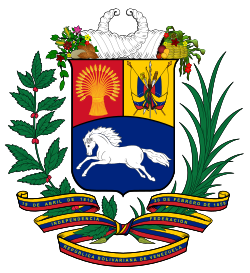You can help expand this article with text translated from the corresponding article in Spanish. (November 2022)Click [show] for important translation instructions.
|
 |
|---|
A referendum on trade union leadership was held in Venezuela on 3 December 2000. [1] Voters were asked:
Do you agree that the trade union leadership must be renewed in the next 180 days, following an Electoral Statute to be approved by the Electoral Power, and according to the principles of alternation and universal, direct and secret elections as ordained in the Bolivarian Constitution of Venezuela, and that the directive boards of those unions, federations and confederations are suspended from their functions until those elections take place? [2]
It was approved by 69.4% of voters, with a turnout of just 23.5%. [2]
